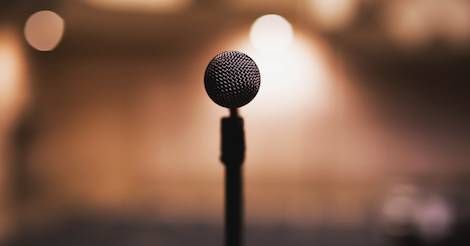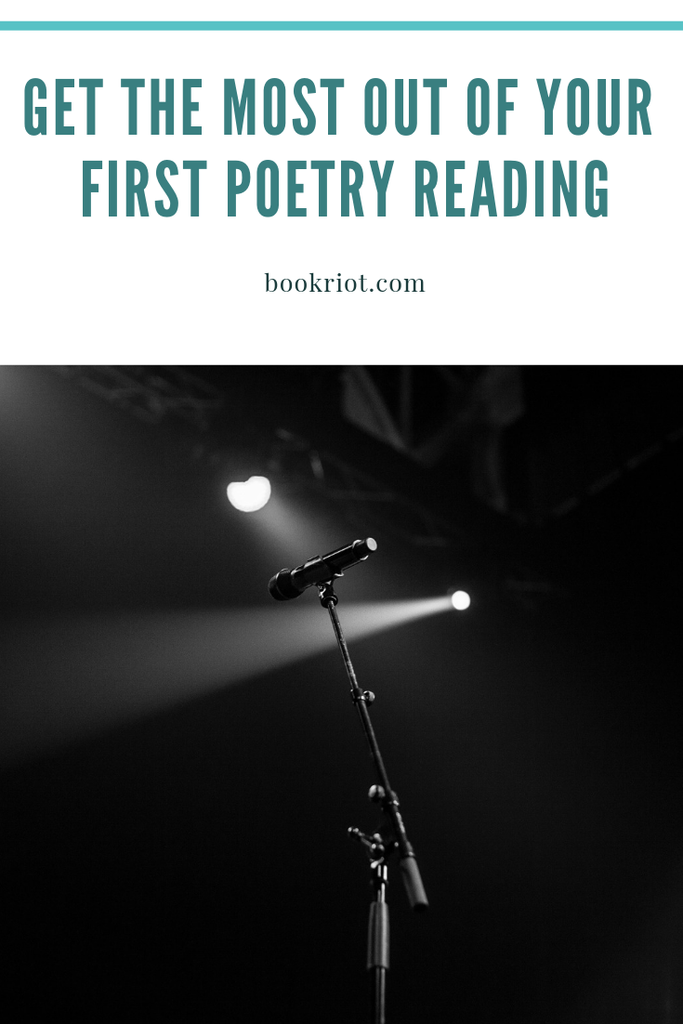
Get The Most Out of Your First Poetry Reading
When I was in graduate school, I went to poetry readings nearly once a week. Before that, I’d been to maybe four of them total, and I admit I wasn’t prepared for my first poetry reading. Poetry readings are often very different from prose readings. The chance to delve into the most stream-of-consciousness stream of words is an honor, but a little hard to understand. I wish someone had taken me aside and told me, here’s how it works.
While I am far from an expert, a few years of loving and living in the poetry reading world has made me want more people to experience poetry readings. Whether you visit a brightly lit bookstore reading or a local reading in someone’s basement, you too can grow to love the poetry reading!
Advice for Poetry Readings
Read the Room
One of the best ways to figure out the vibe of a poetry reading is to chat with people beforehand. If you can get there early, do so; find a drink (snacks are often a part of poetry readings!) and either talk with the friend you came with or someone sitting near you. If they are “regulars” at the venue, they can probably fill you in on the typical timeframe, style, and audience etiquette.
Listen for Music
When the poetry reading begins, I recommend starting off by listening for pure pleasure. What turns of phrase are joyfully assonant or consonant? What rhymes or rhythms exist in the work, and how do you experience them in your body? There isn’t a “right” answer when it comes to musicality in poetry, but I find that people typically compare poetry to being told a story, when often it fits better with the experience of going to a concert and experiencing the feeling of the notes.
Bring a Notebook; Write Snippets Down
I love bringing a notebook with me to a poetry reading, partially because I’m a writer and bring one everywhere. The bigger reason, however, is to jot down 4–10 word phrases from the poems that I want to return to. With great poets, the phrases may come fast and furious, and I want to be able to thank them for a particularly unique expression and to think about it later in the day, when it can continue to affect me.
Love It? Buy It!
In my experience, a lot of poetry readings are free: my favorite in grad school was a potluck dinner and poetry reading, keeping costs down for the people who hosted this event in their own home. One way to think about the poetry reading is that you are essentially getting a really beautiful “preview” of the poet’s book (many of them will have books). If they have copies handy, buy a copy of the books of poets who move you. It still isn’t an expensive form of evening entertainment, and you will make a poet’s night!
Accept the Incomplete Understanding
One of the hardest things for most people to let go of is the need to make full, complete meaning out of a poem. Often, a poem will be a complete whole for the poet and a lot of small meaningful snippets for readers. To really enjoy a poetry reading, you may need to accept that some poems won’t make perfect sense to you. I had to do this when I went to my first poetry reading in my second language, Spanish. I was forced, due to incomplete understanding of the language, to draw whatever I could from every poem, but to accept that some parts were lost to me. It’s not a bad skill for life in general, but it definitely can boost your enjoyment in a poetry context.
Talk to the Poets
You’ll also find that there are poems that you understand most of, but have one persistent, mysterious question about. In that case, see if the poet is around after the reading to chat about it! He or she may not have the answer you expect, but they’ll definitely have thought about the topic a lot. Having a good conversation with a poet after a reading is often one of the most special parts of the experience for me.
No matter how you choose to engage with poetry, accept that the readings you attend will be incredibly diverse. The more open you are to the experience, the better a time you’ll have. Bring a fellow bookish friend and see what you each get out of it by having a cup of tea together afterward and talking it over!















